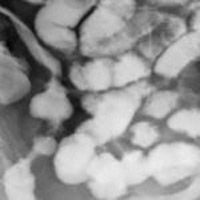Article
Review: Some Nonpharmacologic Treatment Effective in Pediatric GI Disorders
Author(s):
Nonpharmacologic treatments like hypnotherapy were reported effective in pediatric abdominal pain-related functional gastrointestinal disorders (AP-FGIDs).

Nonpharmacologic treatments like hypnotherapy were reported effective in pediatric abdominal pain-related functional gastrointestinal disorders (AP-FGIDs).
A review published online in Pediatrics observed vast improvement of abdominal pain post hypnotherapy versus standard care/wait list approaches and after cognitive behavioral therapy versus control/wait list approaches. They found that at the 6-month follow-up, written self-disclosure improved pain frequency.
Juliette M.T.M. Rutten, MD, from Emma's Children's Hospital in Amsterdam, and her research colleagues conducted a systematic review of the literature relating to nonpharmacologic interventions for pediatric AP-FGIDs. Data were included from 24 randomized controlled trials that included 1,390 children between the ages of 3-18 years.
Researchers noted that significantly more treatment responders had with Lactobacillus rhamnosus GG (LGG) and VSL#3 compared with placebo (LGG relative risk, 1.31; VSL#3 P < 0.05). Irritable bowel syndrome (IBS) symptom frequency was significantly improved with guar gum, however, there was no concrete effect indicated for any other fiber supplements or even a lactose-free diet.
When compared with a wait-list approach, yoga was found to not be linked to a substantial decrease in functional disability. Furthermore, no serious side effects were reported nor were there any indications of high levels of evidence quality.
"Although high-quality studies are lacking, some evidence shows efficacy of hypnotherapy, cognitive behavioral therapy, and probiotics (LGG and VSL#3) in pediatric AP-FGIDs," the authors concluded.




